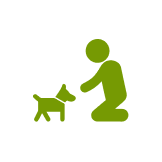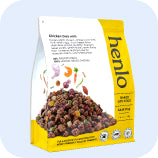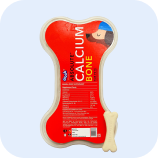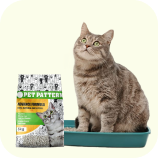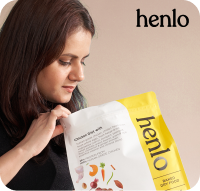In 24 cities
Optimize Your Dog's Health with a Solid Vaccination Schedule

As a devoted dog parent, ensuring your pup’s health is likely at the top of your priority list. One of the most critical aspects of maintaining your dog’s well-being is following an appropriate immunization schedule. Vaccinations not only protect your dog from various diseases but also play a crucial role in safeguarding the broader pet community. Understanding the dog immunization schedule and the vaccines your pup needs can be a bit overwhelming, but don’t worry! Let’s break it down together.
Vaccination Schedule in Dogs: Keeping Your Pet Healthy
As a responsible dog owner, ensuring your furry friend's health is a top priority. One essential aspect of pet care is following a proper vaccination schedule. Vaccinations protect dogs from various diseases and help maintain their overall well-being. Understanding the vaccination schedule in dogs is crucial for keeping your pet healthy and preventing the spread of contagious illnesses.
Why Vaccination Schedule in Dogs Matters
A vaccination schedule in dogs is essential because it helps build immunity against common diseases. Puppies are particularly vulnerable to infections, and vaccinations provide them with the necessary protection. By following a vaccination schedule, you can ensure that your dog receives the right vaccines at the appropriate times, maximizing their effectiveness.
Types of Vaccination Schedules
There are different types of vaccination schedules for dogs, depending on their age, health condition, and lifestyle. The core vaccines, such as rabies, distemper, parvovirus, and adenovirus, are recommended for all dogs. Non-core vaccines, like Bordetella and Lyme disease, are optional and may be necessary based on your dog's exposure risk. Talk to your veterinarian to determine the most suitable vaccination schedule for your dog.
Key Features to Consider
When choosing a vaccination schedule for your dog, consider the following key features:
- Age-appropriate vaccines
- Proper intervals between vaccinations
- Compliance with local regulations
- Availability of booster shots
Appropriate Occasions for Vaccination Schedule in Dogs
Vaccination schedules are appropriate for various occasions and settings, including:
- Puppyhood: Vaccinations should begin when your puppy is around 6-8 weeks old.
- Annual Check-ups: Regular vaccinations are necessary to maintain your dog's immunity.
- Boarding or Grooming: Many facilities require proof of vaccinations before accepting dogs.
- Travel: If you plan to travel with your dog, vaccinations may be required for entry into certain areas.
Care Tips for Vaccination Schedule in Dogs
To ensure the effectiveness of your dog's vaccination schedule, follow these care tips:
- Keep records of vaccinations and booster shots.
- Follow your veterinarian's instructions regarding vaccination intervals.
- Monitor your dog for any adverse reactions after vaccinations.
- Maintain a healthy lifestyle for your dog, including proper nutrition and regular exercise.
By following these care tips and choosing the right vaccination schedule, you can help protect your dog from preventable diseases and ensure their long-term health.
Explore Our Selection of Vaccination Schedule Products
At our store, we offer a range of high-quality products to support your dog's vaccination schedule. Some popular options include:
- Vetrina Immuncare Drops for Dogs and Cats (30ml)
- Vivaldis Viusid Immunity Booster for Pets
- Neo Kumfurt Imu Lat Syrup for Dogs and Cats
- Natural Remedies Natlife Energy & Immunity Supplement Paste for Dogs and Cats
- Himalaya Immunol Supplement for Dogs and Cats
- Vetrina Immuncare Syrup for Dogs and Cats (200ml)
- Savavet Advamun Immunity Booster Syrup for Dogs & Cats (200ml)
These products can help enhance your dog's immune system and support their overall health. Browse our selection to find the right options for your furry friend.



 Golden Retriever
Golden Retriever
 German Shepherd
German Shepherd
 Labrador
Labrador
 Rottweiler
Rottweiler
 Beagle
Beagle
 Preventive Care
Preventive Care
 System wise
System wise
 Supplements
Supplements



